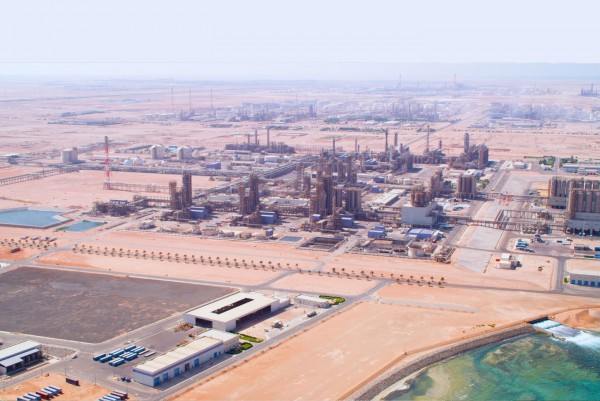OPEC Considers Possible Exclusion of Russia From Oil Production Agreement
OPEC countries are apparently considering the exclusion of non-OPEC member Russia from the concluded oil production agreement. According to a report in the Wall Street Journal, which cites statements from insider circles, other OPEC countries could step in to meet production targets following Russia's exclusion.
 Russia's exclusion could be compensated by other OPEC member states. / Picture: © OMV Aktiengesellschaft / ADNOC Refining Abu Dhabi
Russia's exclusion could be compensated by other OPEC member states. / Picture: © OMV Aktiengesellschaft / ADNOC Refining Abu Dhabi
According to a media report, several OPEC members are considering excluding Russia from the oil production agreement. According to the Wall Street Journal, the thinking is that other OPEC countries can step in to fill the resulting gap to meet production targets.
The bone of contention has been Western sanctions, which massively affect the country's ability to produce more crude oil. The Wall Street Journal cites reports from OPEC circles.
Russia, which is one of the world's three largest oil producers, agreed with OPEC last year to pump more crude oil each month. However, Russia could not maintain this increase in production and will likely miss its production target by about 8%.
Plans are underway, he said, for Saudi Arabia, the United Arab Emirates and other OPEC member states to pump more to meet their targeted production goals. According to an earlier assessment by one expert, this could spell the end for OPEC+, which includes members of the export cartel as well as other producing countries such as Russia.
Since the Russian attack on Ukraine, the price per barrel of oil has risen above $100, embarrassing some economies. As a result, some countries, including the U.S., are calling for an expansion of oil production to bring high oil prices back down.
What is OPEC+
OPEC+, unlike OPEC, is not an international organization, but a platform for cooperation among oil exporting countries. In addition to OPEC members, it includes an extended group of oil exporting countries that do not belong to OPEC but cooperate with the organization. Countries such as Russia, Kazakhstan, Mexico or Oman, for example, are part of OPEC+.
The goals of OPEC+ are the coordination of oil policies in the producing countries as well as the stabilization of world market prices, among other things, through the regulation of production volumes and "fair returns" for investors in the oil industry.
It also aims to ensure a secure energy supply and stability in the long term, thereby contributing to the benefit of producers, consumers, investors and the global economy.



